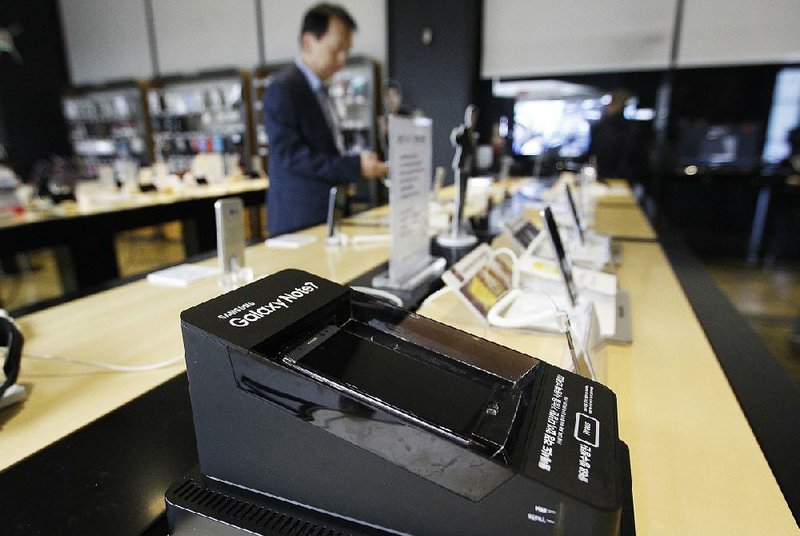SEOUL, South Korea -- Samsung Electronics said Tuesday that it is stopping production of Galaxy Note 7 smartphones permanently, a day after stopping global sales of the ill-fated devices amid reports that batteries were catching fire.
The South Korean company said in a regulatory filing that it decided to stop manufacturing Note 7s for the sake of consumer safety.
Samsung is struggling to regain consumer trust after a first round of recalls that prompted criticism both for the faulty devices and for the company's handling of the problem.
After the earlier recall, the company said it had identified a manufacturing defect in the batteries of its top-of-the-line smartphone.
It started shipping new Note 7 phones that were supposed to be safer. But reports that even the replacements were catching fire led Samsung to announce it was stopping sales of the devices.
Samsung originally blamed one battery supplier for the problems and switched to an alternative company, but that did not end the problems.
"Samsung needs to act swiftly and move on to protect their brand image," said Mark Newman, an analyst with Sanford C. Bernstein in Hong Kong.
Authorities in the U.S. and South Korea are still investigating why even the replacement Note 7 phones that Samsung equipped with a different battery are catching fire. An official at the South Korean safety agency said the replacement phones may have a defect that is different from the problem with the original Note 7s.
Samsung's shares plunged 8 percent Tuesday in Seoul, their biggest fall since the 2008 financial crisis. And that was before it announced it was discontinuing the Note 7.
Samsung's decision to scrap the Note 7 for good will affect suppliers inside and outside the conglomerate. Beyond that, the company will have to assess the impact on future phones.
"What happens to the next version of the phone when it comes out and how much is this going to impact the sales?" said Dan Baker, an analyst at Morningstar Inc. in Hong Kong. "It's not just the phone; their whole ecosystem is behind this -- displays, memory chips. If their phone sales drop, then their sales of other parts of the business will be impacted. It's a spiral."
Also Tuesday, China's product safety regulator said Samsung will recall all Galaxy Note 7 smartphones sold in mainland China, amounting to around 191,000 units.
The General Administration of Quality Supervision, Inspection and Quarantine said it was investigating for defects in the devices.
Samsung will either provide a full refund at the original price or replace Note 7 units with any other model of Samsung phone, and give refunds of the difference in prices, along with a $45 voucher.
Samsung's brand has already been battered by complaints it is doing too little to reassure Chinese owners their handsets are safe.
Initially, Samsung had said in September that the Note 7s sold in China would not be affected because their batteries came from a different supplier, ATL. Samsung recalled 1,858 Note 7 phones in China in September, saying they were distributed for testing before sales to the public began on Sept. 1.
Samsung's fight to catch up with Apple by cramming increasingly sophisticated features into the device may have been the phone's undoing. Industry experts are scrutinizing Samsung's supply chain to see whether the rush to market caused technical problems or led to corners being cut.
"With the Note 7, Samsung strengthened its power as a speedy competitor," said Lee Seung-woo, an analyst with IBK Investment & Securities. "But one wonders whether it hasn't raced ahead alone, without helping its component suppliers to catch up."
Information for this article was contributed by Youkyung Lee of The Associated Press, Choe Sang-Hun of The New York Times and Yoolim Lee and Sohee Kim of Bloomberg News.
Business on 10/12/2016
